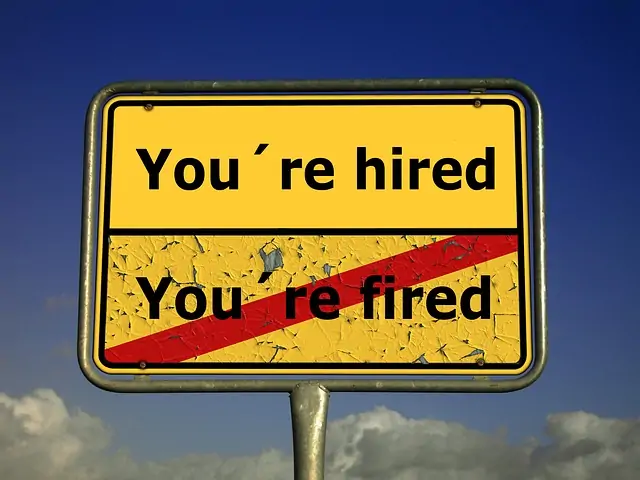This post contains affiliate links. It means that if you click on the links and make a purchase, we will receive a small commission at no additional cost to you. This allows our blog to continue providing you with free information. We only include links and products that we truly believe in. You can read the full disclosure here.
Moving to Germany or new in Germany? Check out our Resources Page for all the help you need!
Struggling to find a job in Germany? You’re not alone. This article features top recruitment experts Nat and Tom, who share their insider tips on everything from job market research to nailing your interviews and evaluating job offers. Discover how to turn your job search into a success story, work in Germany, and seamlessly integrate into German society.
Table of Contents
ToggleIntroduction
Want to work in Germany? If you’re feeling lost and frustrated trying to find a job in Germany, you’re in the right place. This article is here to help you. We know how tough it can be.
I have been through it myself. Without speaking any German, I sent out over 100 applications and received only 3 interviews. But I made it with one of the interviews and worked in Germany for many years.
I can. So, you can, too.
In this article, I’ve interviewed two amazing recruitment experts, Nat and Tom, who have tons of experience helping people like you. They understand the German job market inside and out and are here to share their best tips and advice for those who want to work in Germany.
They will share crucial tips on researching the job market in Germany, evaluating salaries, doing well in interviews, and navigating job offers.
Plus, they will also give you some advice on the process of moving to Germany and fitting into its society. This is important if you want to work in Germany.
Let’s get started!
Who are the guests in this interview?
Sindy: Hey everyone! I’m Sindy, your host for today’s chat. We’ve got two amazing guests with us: Nat and Tom. They’re recruitment experts with tons of experience, here to help expats land their dream jobs in Germany.
Nat, Tom, why don’t you start by telling us a bit about yourselves? What makes you the go-to people for job seekers in Germany?
Nat: Absolutely, Sindy. Happy to kick things off.
I’m a Business Psychologist, Coach, and Recruiting Consultant with experience across various industries. I’ve interviewed candidates for all sorts of roles, from entry-level to leadership positions.
Having conducted over 1,000 interviews and placed 300 candidates, I developed my skills at one of the top recruitment agencies and a leading international media and tech company in Germany.
I know exactly what interviewers and hiring managers are looking for.
I’m here to share tips on how to nail your interviews and make you the standout candidate every recruiter wants to hire, helping you secure that dream job.
I’ve studied in Germany, Malaysia, and the USA, and I conduct interviews in both German and English.
Tom: Hi everyone! I’m Tom, a career coach and recruiting lead for Central Europe’s top automotive tech company. I have a Master’s in HRM and a Bachelor’s in HR and International Business.
I’ve lived in Spain and Australia and have been in HR since 2010. I’ve reviewed hundreds of CVs, conducted over 1,500 interviews, and filled more than 250 roles across Europe.
This international experience has given me a deep understanding of the job market and what hiring managers are looking for.
Key considerations when moving to Germany for work
Sindy: Nat, I heard that you are also an immigrant to Germany yourself. When you moved to Germany, what were the key points you paid attention to?
Nat: When considering moving to Germany, there are several key points to pay attention to. Since I have experienced what it feels like to migrate to Germany from another country, I can share with you what I encountered.
When I came to Germany, I was still a kid, to be precise, nine years old, and I remember having quite a cultural shock. I moved from Russia, so you can imagine how big the difference between the two worlds was.
The first struggle was by far the German language.
I could only say “Danke” and “Ja” when I arrived; that was my whole vocabulary. I have to say that I felt welcome from the beginning and made good friends and great connections with Germans, which helped me learn to speak fluently quickly and made my integration process much more manageable.
So, I can recommend investing time in a German class before or after moving to Germany and connecting with German speakers to dive into the culture. I did get to experience that people in Germany are very kind and polite, don’t like you to be late, and are very reliable.
If you start learning and expressing these skills, you will have a smoother start. Building a close bond takes time, but it is worth investing in! Once you break the first wall, you can expect long-lasting and deep friendships.
To sum it up, speaking German or being willing to learn the language will support you in your integration process. However, if you also know only the two words “Danke” and “Ja” like me back then, it is not a showstopper; I can tell you that from my own story;)
Sindy: I can totally feel your pain, Nat. I had the same issue with the language when I moved to Germany.
Nat: You’ve got this 😉
Another thing that you also can expect is a lot of paperwork.
From registration to opening a bank, signing the apartment contract, and presenting papers when applying for a job, we love documents in Germany.
So, do not be surprised if you end up with a whole folder of different “Bestätigungen” (approvements) after your first month of moving to the country. Here, we like everything approved, documented, and in order 🙂
Sindy: Got it! So, Nat, spill the beans. What are the important paperwork when searching for a job in Germany?
Nat: Well, Sindy. Here are the kinds of papers you will be asked for when you begin your application process.
Firstly, your CV is your entry card and the most important document you must prepare.
With many of my clients in Germany, we work on designing a clear, well-structured CV. The recruiter should be able to see directly within the first couple of seconds what their primary skills are, what expertise they bring to the table, and what their main achievements so far have been.
We usually take a maximum of 1 minute to do the prescreening. Our course will cover “How to prepare a winning CV.”
Sindy: Thank you, Nat! Tom, what are your thoughts on this?
Tom: One thing that keeps happening with my coachees is that they send out generic CVs. So, what does that mean?
In short, they prepare one CV and send it to many job advertisements.
This, by experience, will result in the rejection of most applications as they are not tailor-made.
For example, this client was a Human Resource Information System expert. Yet, with her tech-focused CV, she also applied to more generic role profiles as a Human Resource Business Partner.
Coming back to what we mentioned above, this led to the fact that she almost got no interview invitations. Each CV must be individualized based on the role you are applying for and highlighting the match to the role at hand with your skills, projects, and tasks that cater to this.
Another problem we have seen is that CVs are often not ATS (applicant tracking system) optimized, which might reduce your chances of being seen.
Nat: Besides that, you must submit certificates from the highest degree you obtained, either translated into German or English.
Finally, in Germany, we love, love, love reference letters.
Your reference letters summarize the tasks you did in your previous jobs and the evaluation of your last employer. They are important for your job application. Remember these things I mentioned above if you want to work in Germany!
Sindy: Right. I have already a handful of different reference letters since I have been changing jobs. How about for people who don’t have reference letters from their previous jobs?
Tom: German companies tend to love references and you might not have one. So, it will tremendously help you to ask your former colleagues or employers to leave a reference for you on your LinkedIn profile.
This allows you to gain two things:
It will enable you to have a more assertive profile on LinkedIn, and secondly, it will ease up this process for you as you can provide an alternative.
The best cities for English-speaking professionals to work in Germany
Sindy: For expats who do not speak good German yet, which cities in Germany have you found to most welcoming to English-speaking professionals for work?
Tom: In general, this would be Berlin, where you will have a higher chance of finding an English-speaking job to work in Germany.
Very often, eastern German federal states are less likely to speak English at a higher level than Western German due to our history of being two nations until 1990.
However, there are a lot of “islands” depending on your profile.
So, for example, if you are in the chemistry field and want to work in Germany, you want to consider the Bavarian Triangle, where many multinational companies are located.
Additionally, Germany has many great (international) universities.
Take my case, for example. I studied in a group of 15 different nationalities in Nuremberg at “Ohm University”. Many of my classmates in Germany who were only English-speaking ended up working at Adidas, for example.
These small hubs, such as Herzogenaurach (near Nuremberg), are places where many internationals gather. We have big multinational companies like Adidas, Schaeffler, and Puma.
Another great example besides universities is army bases.
Germany has big US bases like Landstuhl with their communities. If you are from the US and want to work in Germany, you might want to check out these regions first.
Sindy: You are right. I used to study in Berlin where my university was very international, too. Any tips on how to integrate into the German society?
Tom: A great way could be, for example, choosing a shared flat. When I moved to work in Madrid, I lived with two Spanish-speaking flatmates and had no choice but to enhance my Spanish skills. Also, it got me in touch with other Spanish speakers.
Another great way is to use intercultural communities, such as meetups and Facebook groups (E.g., Latinos in Nuremberg). It helps not to feel homesick so much. You can learn a lot from each other, and the bonding is vital as you are facing the same issues.
Also, I’d strongly consider whether you want to align with your heritage.
For example, I am half-Italian and cherish the fact that many Italians live in southern Germany.
Germany is a migration country. 30% of our population has a migration background. We need skilled immigrants to work in Germany to succeed.
We’d be excited to help you find your ideal career and work in Germany. But we also want to help you assess whether it is your perfect place.
Understanding how to start your job search in Germany
Sindy: Nat, I know that you have been coaching many clients. What is your biggest challenge when coaching your client? Can you give any examples?
Nat: When I was coaching my first client, he had an extraordinary situation. I think this was one of my biggest challenges while coaching so far.
He was a very kind and humble guy from Japan who had moved to Germany with all his savings. He came to me because he felt lost with all the job search while doing intensive German courses and trying to navigate the market.
You probably already wonder what was so special about his situation since this sounds like a typical scenario…
He had a gap of four years and experience in 3 different fields – let me tell you, not a CV that a recruiter would typically consider a TOP profile. However, he was willing to work on it. He understood what he had to do to get a job offer to work in Germany, and guess what…
He got an offer only after three months!
Sindy: Wow! How did you help him?
Nat: We first started looking at his primary skills, interests, and passions, which in his case were Data Science and Project Management.
We questioned what exactly he was doing during his gap years, and it turned out that he always did side jobs connected to his Project Management skills. So, we made sure this was visible in his CV.
He got the assignment to go on Google Jobs and search for different roles in the field of Data Science and Project Management. This was to get a feeling of the companies and roles that sounded interesting to him.
During this process, we narrowed down his motivation and matched it with the opportunities on the market. He used LinkedIn, Google Jobs, and Indeed to get an overview of the market and ended up applying and being hired for a Junior position with an excellent salary package.
Sindy: That is really interesting. So, what is your advice to all the applicants out there who are searching for jobs in Germany?
Nat: After several experiences with other coachees, I would say this:
The start of the job search comes down to 3 things
- Get clear on your primary area of expertise, which aligns with your interest and passion
- Start scanning the market with the help of different job search platforms to get an idea of which companies and roles you feel drawn to and which match your expertise
- Send out the first application and see if you get job invitations. If not, you can see it as a sign of a mismatch and can reevaluate your job search strategy
Sindy: Do you think Germany is a good place for job hunting?
Tom: It depends. But not necessarily for everyone….
There might even be cases where moving is wrong, depending on your motives. I recently coached an amazingly talented candidate. She had a great CV and a wealth of experience.
In the case of this coachee, she scored less than five interviews with 100+ applications. By the way, this is an excellent indicator of how targeted your submissions are.
If you get less than 20% of the interview invitation quote (so the total number of interviews/applications), then that’s a sign that there is a mismatch.
Sindy: So, why did this coachee get only so few interviews?
Tom: Good question.
These were the limiting factors for her:
- The coachee moved to a city in Germany with very low (relevant) employer density
- Her favorite companies were in Berlin and did not offer full remote opportunities
- She applied in a situation where the number of roles within HR was critically low, and the competition was very fierce
- The job she was mainly interested in required local knowledge of laws/policies, which she did not have
- She applied for an ultra-niche job (meaning very few roles exist and only a company with at least 500 employees can offer this type of role. In Germany, 99% of companies are SMEs)
- Comparing the cost of living in Eastern Europe vs. Germany, she had a better salary in her home country
- She did not speak any German (while some roles she was interested in required fluency in the German language)
- Her minimum salary expectation did not meet the market. The salary she provided was higher than the market average
Sindy: Hm. That was unfortunate. How can a candidate check whether a city and job field make sense?
Tom: You can check the cost of living of the city that you want to work in Germany. For example, in this case, you can check the cost of living in Berlin against Warsaw.

Once this has been done, you will know roughly how far your currency takes you.
Now, it is time to check out the salary for your job profile.
Imagine you are a female IT Sales Manager and want to work in Germany in a software company like Personio. In this case, you can go to Kununu and check for salary references. You will get this data based on similar job profiles.

Of course, this should not be the only data you consider.
Besides, it would be best if you would use the following data sets:
- Entgeltatlas is the federal employment database of all employed persons in Germany, providing the most accurate datasets on average. Yet this data is not so hyper-targeted. It’s relatively consolidated data.
- Stepstone Salary Planner provides a benchmark value of where you stand based on your experience, sector, city, and desired salary.
With this data, you have relevant benchmarks and are ready to apply them with precise data.
Sindy: These are really good tools to use. When I am searching for a job, how can I know how fierce the competition is?
Tom: One rapid way is to see the bottleneck analysis of our federal employment agency to check whether the area of your job is in demand.
It would be best to go for the Indeed Hiring lab, which consolidates all the data. With this data, you can see WHEN most sales jobs are posted. For example, April 2020 seems to be a lousy month for searching for a job. You can see an example here:

To narrow this down to your area and your job profile, you can use the data of the federal employment office again. As this website is in German, you can use the auto-translate of your browser.
In this case, this data shows some critical points:
- On average, companies need 147 days in Germany to fill roles. In this group, it takes only 86 days. That is a powerful indicator for an employer market where candidates are looked for.
- The job unemployment rate ranges up to 10%, meaning that there might be a surpass of jobseekers

Advice for the interview stage
Sindy: Thanks for all your tips on how to use different tools to research the job market. Let’s say now we get an invitation to a job interview. How should we prepare for it?
Nat: By now, I have helped over 300 candidates successfully prepare for job interviews, and I would say that most of my coachees face two main challenges:
- “What is the best way to prepare my interview questions?”
- “How do I eliminate my fear that is arising before the interview? I am afraid to give the wrong answer!”
At this point, I always try to explain the perception of the “correct” answer. The biggest fear and struggle when going into an interview among my coachees is making mistakes or giving the wrong answer.
Please pay attention here now: There is no such thing!
A specific structure is used to answer questions, like behavioral questions. However, the whole point of an interview is not to check if you are right or wrong but if you are a good match for the role we are trying to fill.
So, try to see an interview in a way like a romantic date – it is an analogy; do not take this literally, please 😉
Both parties are checking
- if there is a match between the skills and the requirements (can you be compatible as a couple in the dating scenario)
- if there is an attraction (in the interview scenario it means if the values between your personality and the company align).
This explanation is, of course, very simplified but usually helps my coachees to see that a good dynamic of an interview is when both parties, the interviewer and the candidate, are on the same level.
Both are going in with the mindset of “I will use the interview to evaluate if we are a potential match” instead of “Oh my god!!! I hope I will not make a mistake!”
This shift can help you feel relaxed and not freak out before the Interview.
Sindy: This is interesting to compare the interview scenario to the dating scenario. They are actually quite similar, haha. What else can I do to prepare for the interview?
Nat: Another exercise I like is to write down everything in my mind when thinking about what can go wrong and then write down what I will do in this situation.
For example: “If I have a blackout, I will ask for some time to think about the answer and take a sip of water.”
The last advice I give to all my coachees is to prepare well. When you are ready, you will feel more confident and more at ease during the interview.
The best way to prepare is to write bullet points for the following areas:
- Self-Introduction
- Interview questions
- Questions for the interviewer.
The self-introduction part is crucial because this is your first impression of the interviewer and your elevator pitch so you can collect some points here.
The easiest way to introduce yourself is by starting from the past and going to your current position, explaining your motivation, achievements, and central areas of expertise.
When preparing your answers for the interview questions, you can expect questions regarding your career goals, motivation, behavioral questions, etc. This is a topic of its own, which we will cover in our course.
Please do not forget to prepare your questions for the interviewer because they will show your interest in the position. Pick 3-5 questions from different areas like team, boss, and company.
Getting a job offer
Sindy: Let’s move to the exciting part: getting a job offer. What is the process like when I get a job offer in Germany?
Nat: After successfully finishing the job interview process, you get the call and hear,
“You got the job!!!”
Now what? How can you know that this is the right step to take?
In Germany, you are usually notified via phone that you have gotten a job. This is when you can express gratitude for the job offer and ask for more details about it such as:
- How many vacation days will you get?
- What are the benefits of your future employer?
- How long is your termination period?
- What is your salary?
- Etc.
I would advise you to write everything precisely to have enough material for negotiation. After the call, you can think about whether everything the offer includes is what you imagined and if you want to negotiate or think about the offer for a certain period.
Usually, when both parties agree, you will receive a written contract. Only after signing is it official that you have a new job!
Sindy: After discussing all the hard facts, is there anything else to consider if the job is for me?
Nat: From my own experience and the experience of many candidates, there is a little trick. You will probably be happy to receive an offer, as it might boost your confidence and give you a sense of accomplishment.
But what comes up if you look back at the whole interview process? Did you feel welcome and well-guided throughout the entire recruitment process? Were you excited about starting this position?
Or did you think, “I cannot imagine working with that person?”
This happened to me once during an interview process. I went through 2 rounds and was so focused on convincing the interviewers that I was the right fit for the role and capable of doing the job that I forgot to ask myself how I felt about the company.
After receiving the phone call and getting an offer with a salary that was even higher than what I was asking for, I hung up and wondered why I was not as excited as I should be.
I went into deep reflection and realized that I could not identify with the company’s mission and did not match personally with my potential future boss. Even if it meant looking for another position, I called the next day and kindly declined the offer.
Looking back, it was the best decision I could have made. It is because two weeks later, I received an offer from my dream company in Germany and I worked there for the next 3.5 years.
I want to tell you this: the decision to accept an offer is essential.
When you work in Germany, you will probably spend 40 hours/week, which comes close to 2000 hours a year at your job. So, choose wisely. It pays off to be a little bit patient sometimes to get the job of your dreams 😉
Sindy: That is very insightful, Nat. Do you have any story to share too, Tom?
Tom: I can share a story from a recent coachee. This was a coachee who applied internally after he (almost) finished his engineering degree. He got the offer. But he reached out to me and asked whether he should renegotiate an offer and how.
At first, he was unsure whether he was getting a good or a bad offer. Sometimes, people concentrate “only” on salary.
He got the salary and a couple of other significant factors he asked for, but it was at the lower end of his salary proposal. He was unsure whether he was getting a lowball offer.
So, we did a thorough salary analysis with the tools mentioned. And the offer was actually very competitive.
In his case, the factors below are great examples of what to look at:
- From his current salary, he got a 15% increase over his current role despite not fully meeting all the criteria. One was that he had no experience in the job he applied for.
- This is significant because it represents a major internal jump, which is not always valid with internal transfers.
- The role was initially in another city, and they asked him to move. But when he declined, they opened the role in his town!!!
- He generally felt very comfortable with this employer and his current team. When applying internally to another job, there would always be a higher “risk”.
Job satisfaction is one of the criteria not considered very often when negotiating a job offer.
Currently, the market is becoming very employee-centric because of the scarcity of talent, resulting in 83% of employees in Germany being happy or rather happy about their work. The IT sector, where we have the highest shortage in Germany, is the happiest place to work.
Conclusion
Sindy: Thank you so much, Nat and Tom, for sharing your tips and advice today. Your help will make a big difference for many people trying to find a job and work in Germany.
To our readers, I hope you found this interview helpful and inspiring. You’re not alone in this journey. With the right strategies and preparation, you can turn your job search into a success story.
Good luck on your job hunt, and we look forward to hearing about your success stories soon.
Pin it for later:

Are you working in Germany? How was your job-hunting process? Do you have any tips for other job seekers in Germany? Leave a comment below and share your experience!
Moving to Germany or new in Germany? Check out our Resources Page for all the help you need!
If you found this article helpful, consider supporting this website by buying me a coffee. Every small donation helps to keep this blog alive. You can also ask me any questions here. Buy me a coffee







